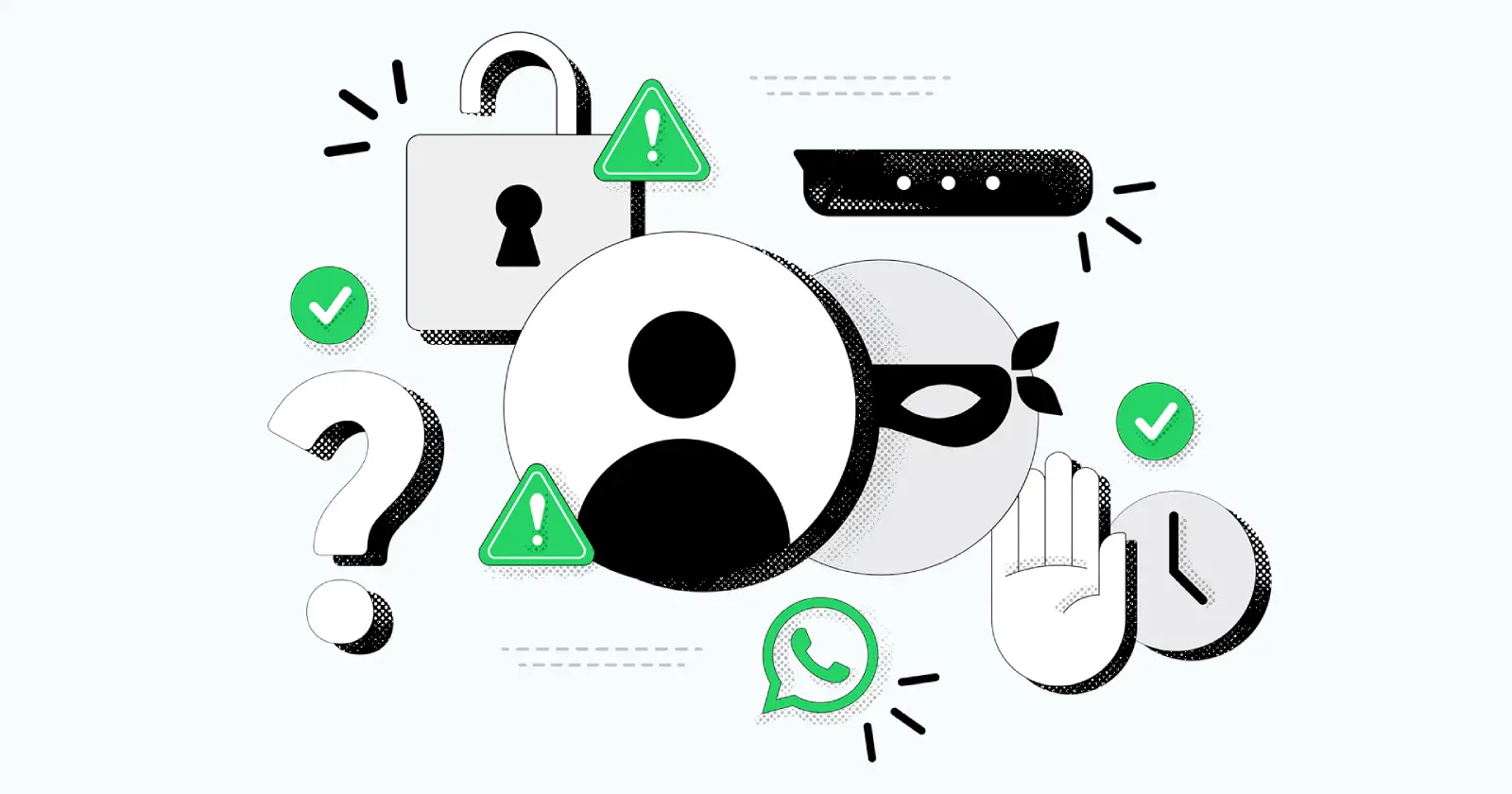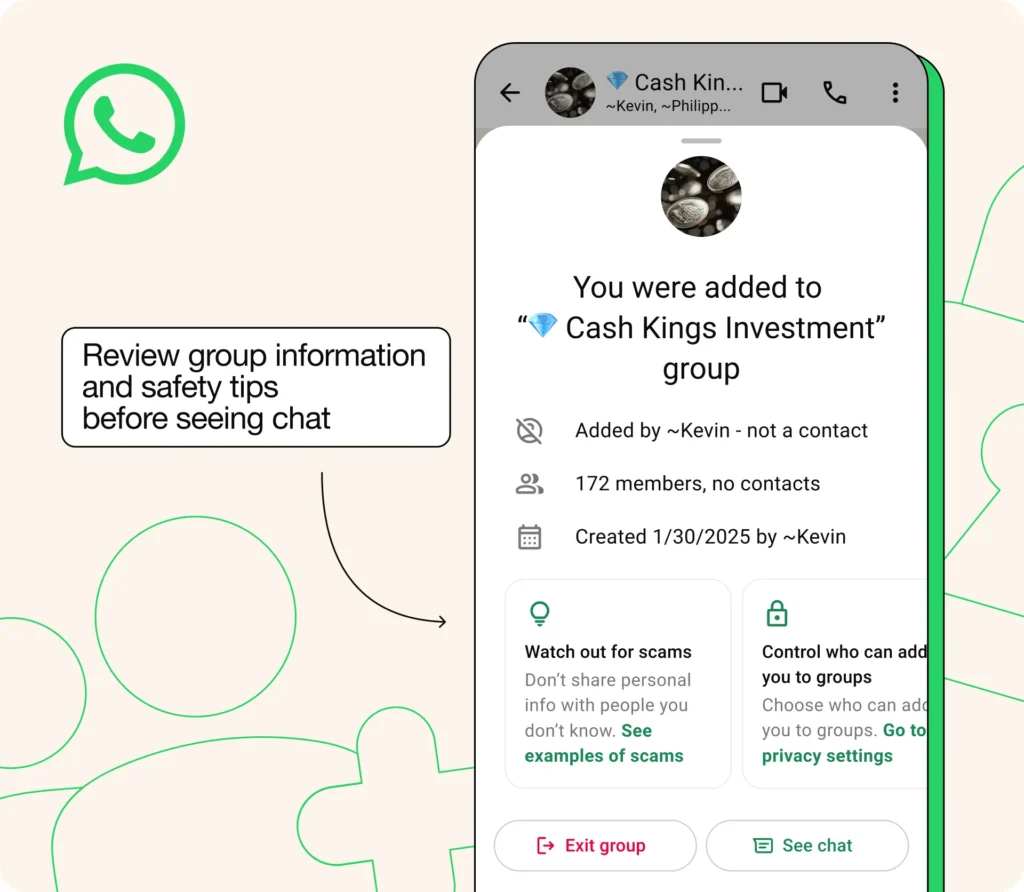WhatsApp is finally cracking down on the scammers that have been plaguing its platform for years. The messaging app is rolling out some much-needed new features to help protect users from increasingly clever fraudsters who seem to come up with new tricks every day.
If you’ve been using WhatsApp for a while, you’ve probably heard about some of the nastier scams going around. There’s that awful “Hi Mum” scam where criminals pretend to be your kid, claiming they’ve lost their phone and need money urgently. It’s heartbreaking how many parents have fallen for this one. Then you’ve got the WhatsApp image scam, where hackers hide malicious software inside what looks like a normal photo. Open it, and suddenly they’ve got access to your passwords, bank details, the works. And there’s the OTP code hijack, where scammers trick you into giving them your one-time passcode so they can take over your entire account and then go after your friends and family.
WhatsApp’s response includes a handy new safety overview for group chats. Now, if someone you don’t know tries to add you to a group, you’ll get a clear breakdown of what the group is about and some safety tips before you decide whether to join. You won’t even see the chat messages until you choose to engage, and notifications will stay muted until then. They’re also testing warnings for when you start chatting with someone new who isn’t in your contacts, giving you more background about who you’re talking to.
These updates are part of a bigger push by Meta to tackle what are often sophisticated criminal operations. In just the first six months of this year, WhatsApp shut down over 6.8 million accounts connected to scam centers, many based in Southeast Asia. These aren’t just lone wolves operating from their bedrooms. We’re talking about organized crime groups, sometimes using forced labor, running multiple scam operations at once. They might hit you with fake crypto investments, pyramid schemes, you name it.
What makes these scams particularly tricky is how they hop between platforms. A scammer might first contact you through a dating app or text message, then move you to social media, then WhatsApp, and finally try to get you to transfer money through payment apps or crypto platforms. Since each platform only sees part of the picture, it’s tough for any single company to catch the full scheme.
You can watch this video by Rachel Tobac, an internet safety expert and ethical hacker, who Meta partnered with to explain how scammers try to target unsuspecting users.
But there’s some good news on the collaboration front. WhatsApp, Meta, and OpenAI recently worked together to shut down a scam operation in Cambodia that was using ChatGPT to write convincing initial messages. These messages would lure people into WhatsApp chats with promises of easy money or fake job offers, then move them to Telegram where they’d be asked to do simple tasks like liking TikTok videos before eventually being pressured to deposit money into crypto accounts. You can read the whole report published by OpenAI for more details.
WhatsApp keeps hammering home the same advice, and it’s worth repeating: pause, question, and verify. If something feels off about a message, especially from an unknown number or if it sounds too good to be true, take a step back. Ask yourself if the request makes sense. Are they trying to rush you into something? Most importantly, if someone claiming to be a friend or family member is asking for money from a new number, just call their regular number to double-check. It’s such a simple thing, but it can save you a lot of trouble.
WhatsApp has had its share of security challenges over the years. Some governments have even banned it from official devices because of security concerns. But the company stands by its end-to-end encryption, which means only you and the person you’re messaging can read what you’re saying. They’ve also been working with ethical hackers through programs like Pwn2Own, offering big rewards to people who find and report security holes. This hands-on approach, along with the new features and partnerships with other tech companies, shows they’re serious about keeping users safe (at least from scammers).
My two bits on this are that no matter how hard companies like Meta try to combat scams, it’s we who need to be alert. As long as scammers find ways to trick us, they’ll keep at it. Why? Because even if they manage to wipe out one bank account out of a hundred, they still win. Sharing articles like this with your friends and family might help make them aware. At the end of the day, just be smart about your interactions online, and if things seem too good to be true, you’re probably right.
TechIssuesToday primarily focuses on publishing 'breaking' or 'exclusive' tech news. This means, we are usually the first news website on the whole Internet to highlight the topics we cover daily. So far, our stories have been picked up by many mainstream technology publications like The Verge, Macrumors, Forbes, etc. To know more, head here.



